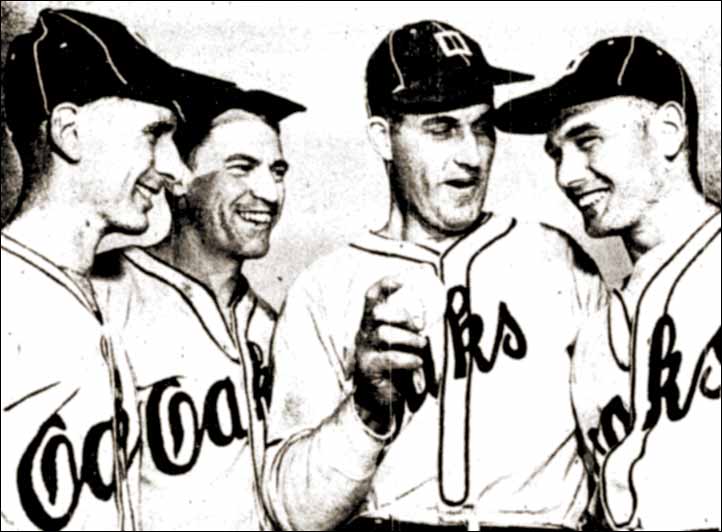
Veteran pitcher Al Yarnell has a laugh with teammates after an early season victory in the Toronto-area Viaduct League. The Oakville Oaks went on to win the Toronto city championship. Yarnell is second from the right, with centre-fielder Ben Languay at the right. Left is left-fielder Doug Wilson, and between Wilson and Yarnell is pitcher Jack Turner. Yarnell, the playing manager, was marking his 22nd year of sandlot ball in and around Toronto.
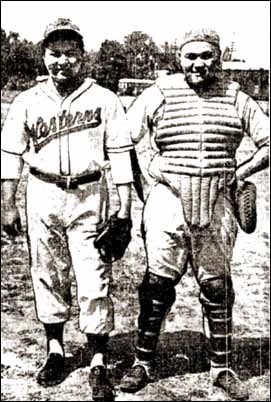
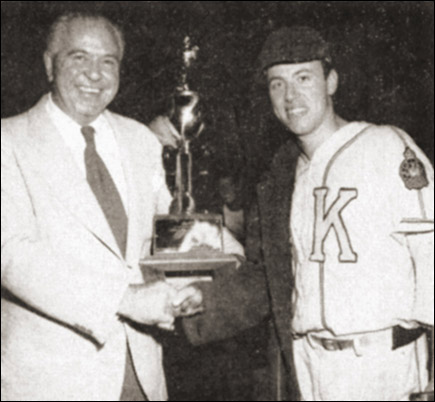
(Above left) Key members of the Westerns of the West Toronto Senior League, pitcher Ken Mitsui (left) with brother and catcher Koei Mitsui. The Westerns, a Japanese-Canadian team, had joined the Toronto senior ranks with a team of their own in 1948.
(Above right) Frank Peppiatt, representing the Canadian National Baseball Congress, presents the Canadian championship trophy to manager Bobby Schnurr of Kitchener.

Not baseball, but 1949 was the year a Toronto team became the first from Canada to win the world softball championship.
To do it all they had to beat was one of the best pitchers ever to play the game. Herb Dudley, a divinity student, who didn't pitch on Sundays, was the ace for the Clearwater, Florida, Bombers.
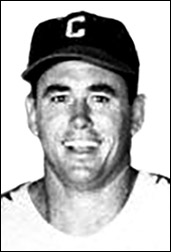 In his three previous seasons, Dudley (left) had racked up won-lost records of 25-0 in 1946, 27-1 with 13 no-hitters in 1947 and 25-1 in 1948. Coming into the final, the righthander had set a record with 55 strikeouts in a 21 inning 1-0 victory and then, 10 minutes later, fanned another 12 in a nine-inning triumph. Against Toronto, he would pitch all 18 innings of the final contest, racking up another 22 strikeouts. But, Tip Top Tailors of Toronto would win 3-1.
In his three previous seasons, Dudley (left) had racked up won-lost records of 25-0 in 1946, 27-1 with 13 no-hitters in 1947 and 25-1 in 1948. Coming into the final, the righthander had set a record with 55 strikeouts in a 21 inning 1-0 victory and then, 10 minutes later, fanned another 12 in a nine-inning triumph. Against Toronto, he would pitch all 18 innings of the final contest, racking up another 22 strikeouts. But, Tip Top Tailors of Toronto would win 3-1.
Clearwater took the lead in the 3rd inning with Clair Kane scoring on a single by Eddie Moore. It stayed that way until the seventh as Dudley had a no-hitter after six. In the 7th, a single by Len Gaull broke up the no-hit bid, Art Upper followed with another one-bagger and Joe Spring was walked to load the bases. A safety by Charlie Justice scored Gaul to tie the game. Spring received three free passes in the game.
Justice, an import from Michigan, then took over the pitching duties from starter Russ Johnson.
In the 18th inning, Johnson and Gaull both singled before rightfielder Art Upper cracked the game-winning blow to put the Canadians in the lead. Justice set the Americans down over the last 12 innings for the win. He fanned 13. Starter Johnson and Justice allowed just 8 hits.
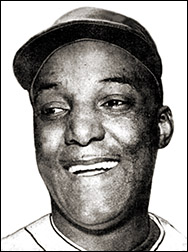 The championship was held in Little Rock, Arkansas, which forced the team to overcome racial barriers as the club had three black stars, including pitching ace Justice (right).
The championship was held in Little Rock, Arkansas, which forced the team to overcome racial barriers as the club had three black stars, including pitching ace Justice (right).
The team's lineup : Len Gaull (C), Shelly Miley (C), Joe Spring (1B), Bill Imray (2B), George Phillips (2B), William “Babe” Gresko (3B), John Kozachenko (3B), Ed Geralde (SS), Ray Pulfer (LF). Pat McCullagh (CF), Vic Goberis (CF), Art Upper (RF), Charlie Justice (P), Russ Johnson (P), Tom Stewart (P), Percy McCracken (P), Jim Green (Trainer), Sam Shefsky (Manager).
The Toronto Sun October 17, 2009
TORONTO TEAM THAT WON 1949 ASA HEADED TO SOFTBALL HALL OF FAME
Sultans of softball
Transcendent 1949 team to receive long overdue acclaim when it enters hall next month
By IAIN COLPITTS, SPECIAL TO SUN MEDIA
When Charlie Justice entered an Arkansas hotel in September 1949, he wasn’t welcomed with open arms. Because he was a black man, the star pitcher for the Tip Top Tailors softball team was told to leave immediately.
“They wouldn’t let Charlie in the hotel,” teammate and left fielder Ray Pulfer said. “So I said to them: ‘That’s not right.’
“Then one of the workers grabbed me by the arm and said: ‘Look here, don’t side with the blacks down here or they’ll have you looking down the barrel of a gun.’ So that really scared me, I kept my mouth shut after that.”
Justice was one of three black players on the Tip Top Tailors, the champions of the 1949 Amateur Softball Association of America. The team finally is getting its due next month when it enters Softball Canada’s Hall of Fame.
Shelley Milley (catcher) and Percy McCracken (pitcher), the other black members of the team, also were discriminated against the minute they set foot in Little Rock.
“When we arrived at the airport, there was a sign to the left that said: ‘Whites’ and a sign to the right that said: ‘Blacks.’ We walked right down the middle,” recalled third baseman and Toronto resident Bill (Babe) Gresko.
“Then, when we got to the hotel, we all walked in together and the manager said: ‘Come on you black boys, get out of here. You don’t belong in here.’ So, we all walked out as a team and they ended up staying in the black section of town. There were three or four other teams that had the same problem.”
The Toronto entry was Canada’s lone team.
The ASA championship was considered the unofficial world championship and the ‘49 Tailors were the first team from Canada to win it.
“A lot of teams couldn’t afford to go, so anyone who had the money went,” said Pulfer, now 86 and living in Etobicoke. “So we played a best-of-three series against Peoples (Credit Jewellers). We beat them in the first two games, so that sent us on our way.”
Long before the Blue Jays came to Toronto, fastball was booming.
During the late 1940s, thousands of fans would stroll over to Kew Gardens to watch the best teams compete in the Beaches Fastball League. Tip Top Tailors was one of them.
Justice, Milley and McCracken died long ago, along with all but four teammates.
Pulfer, Gresko, Lenny Gaull (catcher), and Pat McCullough (centre field) are the only survivors from the championship squad.
Over the past few decades, the team has been relatively unheard of in the softball community. Thanks to research done by John Stevens, a St. Marys resident who used to work for the Canadian Baseball Hall of Fame, their achievements will be recognized.
“The team was in danger of being forgotten,” Stevens said. “People from that era were dying and if we don’t get them in the Hall of Fame, there’s no way they’re going to be remembered.” Stevens put together the bid for their nomination and in June they were named one of this year’s inductees.
Before 1949, nobody in Little Rock had ever heard of Tip Top Tailors. Certainly, they were shocked when the Torontonians were one of only two undefeated teams when they reached the semifinal against Mercedes, Tex., the other team without a loss.
“We were just as good as any other team in that tournament,” said Gresko, 86.
In the championship qualifier against Mercedes on Sept. 21, they scored four times en route to a 4-0 victory.
Justice wouldn’t let the prejudice stop him as he allowed only one hit in the win.
The stage was set for the final. It would be the Tip Top Tailors against the Clearwater (Florida) Bombers and their phenom pitcher, Herb Dudley.
“He was a hell of a pitcher,” Gresko said. “In one game, he struck out 58 men over 21 innings.”
The championship game got under way on Sept. 23 and, 18 innings later, the Tailors had defeated the Bombers 3-1.
To their credit, the Clearwater Bombers didn’t make it easy. They led 1-0 until the seventh and final inning of regulation before Justice drove in the tying run.
He pitched the extra innings for Tip Tops, after Russ Johnston worked the first seven. Justice struck out 13 batters.
Dudley went the entire 18 innings, one of three games he pitched in two days. Art Upper (right field) eventually found a hole in Dudley’s delivery and sealed the game with a two-run single in the 18th.
“We got lucky because one of their games was on a Sunday and Dudley wouldn’t pitch because he was a preacher,” Gresko said.
“They ended up losing and had to beat us twice to win the championship. If they had won that Sunday game, it would’ve just been a single knockout.”
And with that, the Tip Top Tailors were the “world champions” of softball.
Elite players were high in demand during this time and Justice, McCracken and Milley all brought enough talent from Michigan to secure them full-time jobs in Canada.
“Charlie and Shelley worked for Tip Tops during that time,” Gresko said. “Percy was working with Levy’s Auto Parts, but we picked him up to play for us in the tournament.”
“Down there the blacks were frowned upon, but up here they were on equal footing,” Pulfer said. “The three of them came over from Detroit. Anyone who came from Detroit lived like kings here in Canada, but back in Detroit they were nothing.”
Bill McBratney played for People’s Credit Jewellers in the Beaches league and recalled Justice’s value. Justice worked a few days at Tip Tops and was paid quite lucratively on the diamond.
“Charlie was selling suit material for Tip Tops,” McBratney said. “Of course when I say that, I don’t know how much selling he did.”
In Canada, these players were given the chance to shine on the field and escape the prejudice they faced back home.
The Tip Tops players didn’t receive the reception they would’ve liked from the Little Rock crowd upon winning the championship.
“The winning team was supposed to have a banquet but we didn’t have one because of the black boys and us being Canadian,” Gresko said.
“We had our party at two o’clock in the morning because the game didn’t finish until after midnight. We went to the black section of town and that’s where we had our party.”
However, it was great returning home, and Pulfer took in every moment of the ceremony when the team arrived back in Toronto.
“They took us down to city hall and they were very nice to us.” Pulfer said. “We stood on the steps of city hall and were given many gifts. It was a lovely reception.”
Even before the team left for Arkansas, they were treated like kings. The championship meant a lot to Toronto and Tip Tops owner Joe Dunkleman, who made sure his boys went down to Little Rock in style.
“They travelled down in a Tip Top Tailors plane,” Stevens said. “It was really a first-class operation. They were all in their suits looking sharp and it was a class act. That wouldn’t happen today.”
The sport was at its peak in terms of popularity through the 1940s, but management changes and a lack of sponsorship led to the downfall of the league shortly after Tip Tops won the world championship.
“We used to draw well out there. Maybe a couple thousand every night,” Gresko said as he reminisced about his time spent playing at Kew Gardens. “But 1952 was the turning point when they shut down the league for the season.”
The problem started at the opening of the 1950 season, when executives decided to charge a fee at the gates, something that didn’t sit well with the fans.
Also, imports were no longer allowed into the league, meaning there would be no more Americans with the skills of Justice, McCracken or Milley playing at Kew Gardens.
Dunkleman had seen enough. The team didn’t renew with the league in 1951 and that was the end of the franchise’s legacy.
By 1952, the league didn’t have enough team sponsors to continue and ceased operations for that year. The league returned in 1953, but it was never the same.
“After that, we started to get a lot of different teams,” McBratney said. “The calibre of those teams wasn’t as strong as they were previous (before 1952), but it was still pretty good ball.”
By the 1970s, the league had expanded outside of the Toronto core as teams such as Scarborough Cable TV, the Oshawa Tony’s and the Richmond Hill Dynes (1972 world champions) made their way over to Kew Gardens.
“Attendance wasn’t like it was back in the days of the original Beaches League,” said Stevens, who played in that league during the 1970s. “We might get 300 people, not 3,000.”
Over time, the numbers dwindled. By 1987, the league had quietly gone extinct.
Through his quest to document the team, Stevens uncovered an incredible story.
“After getting to know both Ray and Babe, I discovered a story that could be made into a movie,” Stevens said. “It was a completely different era in the sport, one that has never been duplicated and probably never will be.”
When the team is inducted into the Hall of Fame on Nov. 14 in Ottawa, Stevens is determined the four remaining players will be at the banquet.
“Somehow, I’m going to get the living players up there,” Stevens said. “I’m going to get them up there because they deserve it.”
For Stevens, what started out as a standard nomination procedure has turned into so much more. He has come to know two terrific men and is grateful for the experience.
“Once you get to know these people, you want them to have their last hurrah,” Stevens said. “They’re both exceptional people and they’ve given much more back to the game than they’ve taken from it.”
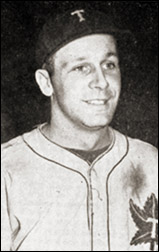
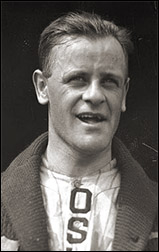 Joe Spring Jr. (left), the first baseman for Tip Top Tailors, was both a baseball and softball star. As well as his work with the Tailors, he pitched and played second base in the Toronto Viaduct Baseball League.
Joe Spring Jr. (left), the first baseman for Tip Top Tailors, was both a baseball and softball star. As well as his work with the Tailors, he pitched and played second base in the Toronto Viaduct Baseball League.
In the 1947 National Baseball Congress Tournament in Toronto, Spring was selected as the outstanding player. In the 1949 baseball season he won the batting title finishing with a .395 average to follow up his batting championship in 1948. He was the leading moundsman in the West Toronto league in 1950 with a 6-1 record and was tops in strikeouts.
Spring, who continued to play softball (after a suspension for an altercation with an umpire) was part of a team in 1951 which handed the legendary Eddie Feigner and His Court one of their worst ever defeats. B-A Motors of Toronto crushed the visitors 11-0. Spring had one of four home runs for the winners.
He was the son Joe Spring Sr. ace hurler of the renown Toronto Oslers in the 1920s and 1930s.
The Oslers went on a Canadian tour in 1926 taking on the best teams on the prairies and the west coast. The Vancovuer Sun carried this on Spring in their edition of June 26, 1926.
" ... Joe Spring has been pitching ball since he was fifteen, and for the past eleven years has been the best right-hander in Eastern Canada and is still king of all cross-fire and curve-ball flingers ...
In his long career he has only been knocked out of the box once--a remarkable record. He is the mainstay of the great Osler machine in the box, a cool, heady, hard working pitcher who never loses heart, and is the most popular player among the many thousands of ball players in the city of Toronto.
Two years ago he was awarded a special prize as the most valuable player in Toronto by all leagues following a vote taken by the Toronto Amateur Baseball Association. One wonders how long Spring is going to last ... He is also a strong hitter--and gentleman on and off the field. He has been with Oslers seven years."
Joe Sr. lost three prime years as he served overseas with the 48th Highlanders during World War 1. He was wounded twice. But on his return to Toronto in 1919 in joined the Oslers in time to help them to the City championship. After a few Old Timers' games in the late 1930s, Joe Sr. retired from competition but stayed in the game, becoming a well-known and respected umpire in local baseball and softball leagues.
